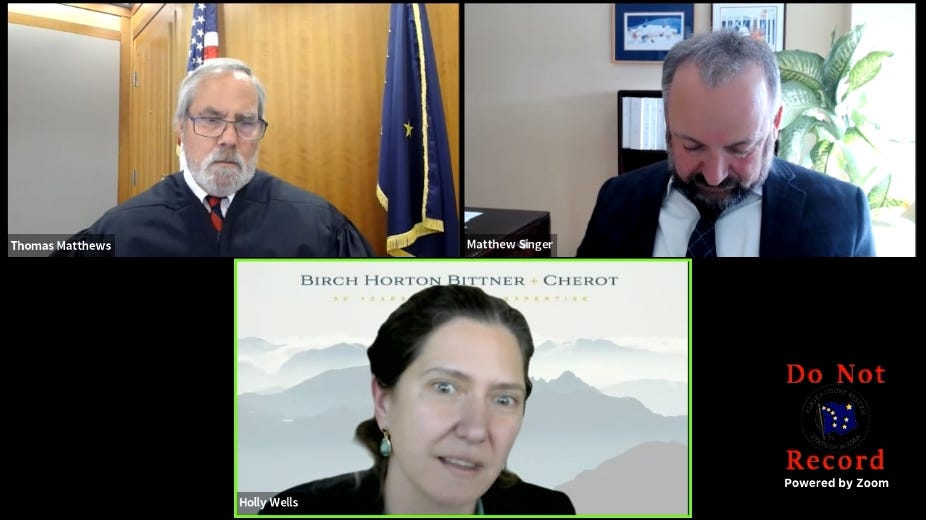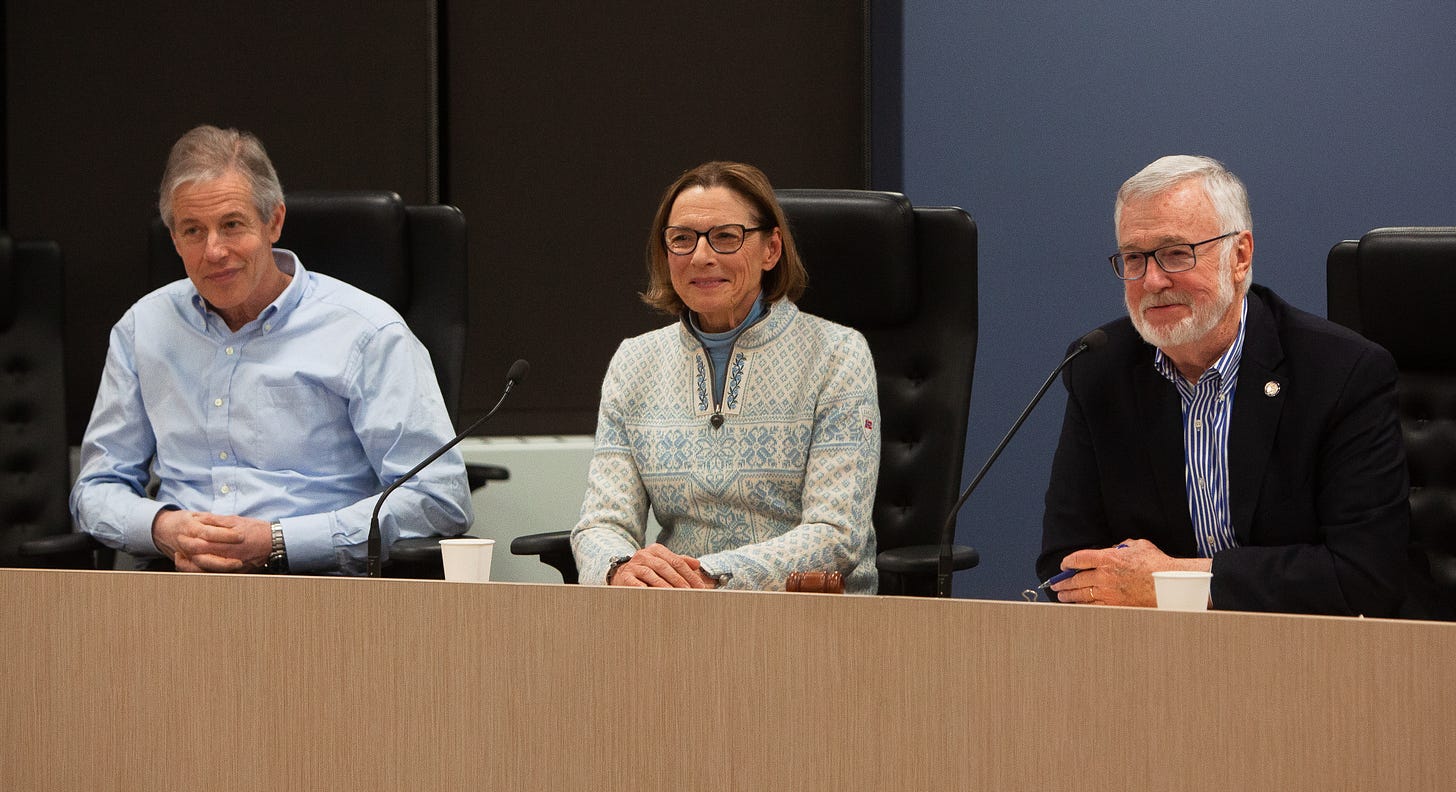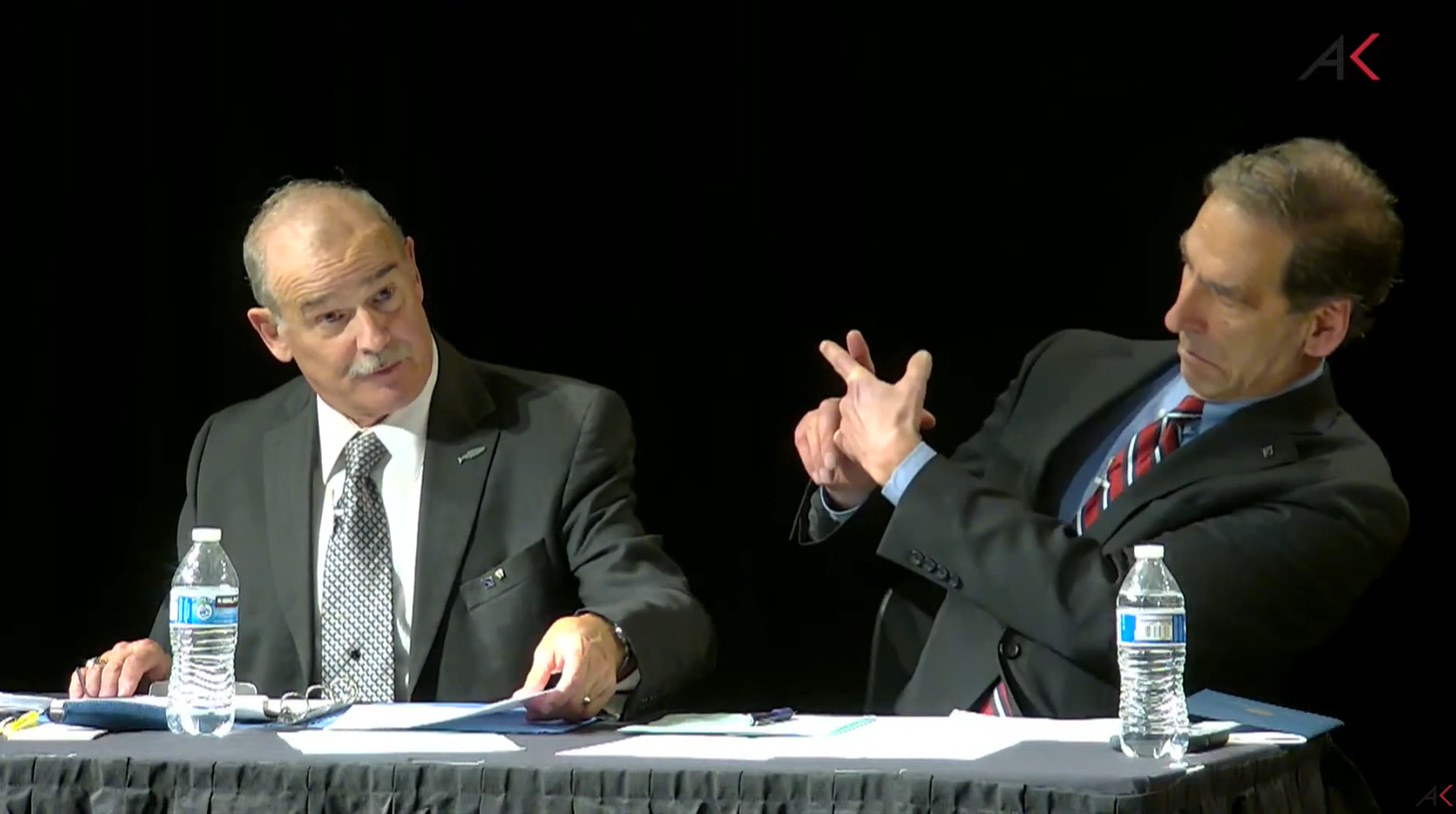2022 wasn't as bad as expected, but then again we weren't expecting much
Finally, let’s look at 2022.
Happy Monday, Alaska.
In this edition: Finally, the 2022 year in review edition.
Current mood: 🥳
Coming soon: Let’s look at those pre-files! Time to get into the spirit of session!
2022: Not as bad as expected, but then again we weren’t expecting much

I’ve spent the last few weeks mulling over just what kind of year 2022 was. Was it a good year? A bad year? A confusing year? Does anyone even care in the first place? OK, maybe that last one is just between me and my writer’s block, but what I kept coming back to is that it was, putting it simply, a lot.
As the year that followed up on the “terrible, horrible, mostly bad year” that was 2021, it often felt like we were bracing for the worst, whether it be the possibility of U.S. Rep. Sarah Palin, a constitutional convention driven by loons and four years of having to listen to Kenai Sen. Tuckerman Babcock on the Senate floor. On the national level, it was a parade of bad news with the U.S. Supreme Court leading the show, followed by a raft of cynical legislation throughout the country and the anticipation that a blood-red wave of election deniers would take complete control of Congress.
In many cases, things turned out to be not as bad as expected.
To be clear, there’s still plenty of things to worry about when you’re pacing at 3 a.m.—that Supreme Court isn’t going anywhere anytime soon—but this year gave us the rise of U.S. Rep. Mary Peltola, who showed decency can be a winning strategy in politics, a round of redistricting that will give us fairer-than-could-have-been-expected districts for the next decade and a bipartisan Alaska Senate majority that finally seems unafraid of sidelining the obstructionists.
In this belated end-of-year round-up, I wanted to highlight a handful of story threads from 2022 that turned out a little differently than expected.
It turns out you don’t have to say ‘I’m gerrymandering’ to be caught gerrymandering

Ah, redistricting.
Facing accusations that the Alaska Redistricting Board’s Republican members rigged Anchorage’s Senate pairings in their political favor, the board’s legal team argued, essentially, that it’s not gerrymandering unless you literally say “I’m gerrymandering” aloud. The plaintiffs couldn’t prove nefarious intent, the legal team argued, so the maps that extended Eagle River’s political influence over two Senate districts should be allowed to stand.
Judge us not by our actions, they argued, but by our words (Nevermind that some of those words were literally about giving Eagle River ‘more representation’).
Of course, it was exactly the sort of thing that could probably work (after all, it worked for Rep. David Eastman in his disloyalty case), but both Anchorage Superior Court Judge Thomas Matthews and the Alaska Supreme Court saw through it, finding that you don’t have to prove clear intent when the results are obviously problematic. Sent back to the drawing board for the second time, the Alaska Redistricting Board finally relented and decided to keep Eagle River as a single Senate district.
Why it matters: The end result is a set of maps that, with few exceptions, is far more fair and competitive than maps of the past. We saw Democrats pick up enough seats in the Senate to make a bipartisan majority a reality and several districts will likely be competitive for years to come.
Keep pacing: This round of redistricting also showed just how sophisticated some are getting when it comes to bending the rules. The Alaska Redistricting Board came into the process aiming for a legal fight and adopted an aggressively broad reading of the prior case law on redistricting. Buckle up for 2032.
It turns out bipartisanship and civility still have a place in politics
The special election to fill U.S. Rep. Don Young’s seat—Alaska’s first conducted under the new ranked-choice voting system—put a whole bunch of conventional political wisdom and assumptions to the test. Ranked-choice voting created a new dynamic where the parties didn’t control the nomination process and there was more room for simple party allegiances, but Alaska is still a Republican state, right? They’ll surely elect a Republican, right?
We all know how the story goes now that U.S. Rep. Mary Peltola has nearly four months in Congress under her belt.
Peltola’s campaign recognized the new paradigm of ranked-choice voting and took the high road as Republican challengers Sarah Palin and Nick Begich III spent the special election campaign embroiled in a slap fight. Even after the special election’s results showed they needed to adopt a different strategy if they wanted a Republican in the seat, they continued to squabble through November.
Why it matters: Rep. Peltola’s election seemed to foreshadow what was, generally speaking, a not-as-bad-as-expected midterm for Democrats. While there’s plenty of reasons why that all came to pass, it’s nice to think that people are starting to fatigue out on the angry, divisive politics that has come to characterize the GOP as of late. Also, the Alaska Democratic Party has its first bona fide superstar in recent memory, who could make splashes in pretty much any statewide race she wants.
Keep pacing: Though, all things said, could you imagine what the battle over the House speakership would have been like had U.S. Rep. Sarah Palin been involved?
It turns out ranked-choice voting’s best bet at survival is ranked-choice voting

If there’s one clear takeaway from Alaska’s first regular election conducted under the new system, it’s that all the partisan angst about the system was justified. The combination of open primaries and ranked-choice voting in the general election has nearly completely wrenched control out of the political party’s hands.
The layout of the Alaska Senate is, without a doubt in my mind, a result of the new election system. But it’s not so much a function of the mechanics of ranking our votes, but a function of the open primary system. The semi-closed partisan primaries of the past were, in many cases, the de facto contest to determine the representation of a district. Live in Eagle River or Wasilla? The Republican primary was where races were decided, and the same went for Democrats in downtown Anchorage or Juneau.
The ranked-choice voting portion of the new system is necessary so that multiple candidates from the same political party can run without fear of playing spoiler, which worked as expected with three House races seeing the final result change once third-place candidates from the same party as the second-place candidate was eliminated and the votes were retabulated.
Polls and everything aside, any serious effort to repeal it will have to go through a Senate that owes its composition to ranked-choice voting.
Why it matters: Whether all of this great talk about moderation and bipartisanship comes to mean anything is yet to be seen. We’ll see how long the wheels can stay on.
Keep pacing: You never really know what the final days of a legislative session have in store. Anything moderately election-related is likely to see a flurry of floor amendments taking aim at ranked-choice voting.
It turns out the constitutional convention is even less popular when you campaign for it

“I don’t even trust the Pope!” Ah, we have Alaska Independence Party chairman Bob Bird to thank for what was certainly an eye-opening look into the world of constitutional convention hopefuls. Where conventional wisdom said a successful vote to call a constitutional convention was always going to be a long shot, it didn’t stop there from being a fair amount of teeth gnashing among the ever-worried. Perhaps the PFD argument would be the key to finally unlock it all, some worried.
Just as the U.S. Supreme Court took an ax to reproductive rights, things started to heat up on the campaign to call a constitutional convention with Gov. Mike Dunleavy throwing the unprecedented support of a sitting governor behind the cause.
While it was nominally about the dividend, folks like Bird were at least up front that they saw it as the toe in the door to make sweeping changes to the Alaska Constitution on everything from the right to privacy to whether state-run education is necessary in the first place.
And what did a real concerted campaign do to the effort? The question failed by a larger margin than it did in 2012.
Why it matters: The sideshow-y nature of the whole thing aside, it was good to have a real debate on the issue rather than treating it like all the judicial retention questions we zoom through. As the vote showed, the debates made a difference. Just not the difference convention supporters wanted.
Keep pacing: If the governor and Legislature are ever closely aligned on the issue, they could always try to call their own constitutional convention.
Weekday watching
If 2023 recaps of 2022 are your thing, then here’s my favorite video game YouTuber’s year-end list.
Thank you, everyone.




The red wave never materialized and a fair number of right wing people running for office in Ak
were un-successful. I was not happy that David Eastman was able to remain in the legislature. My view is that he should not be anywhere near the legislature. The man is an extremist in my opinion.
The most recent awfulness pertaining to Kevin McCarthy finally being elected to the House speakership was painful to watch. Kevin sold himself, nothing new. He will be gone no doubt before his term in the house is over. The so called "Rebels" represent a group of truly awful people who care nothing about governing and seem to focused soley on getting power for themselves. David Brooks referred to them as the "nilisists" who want to blow things up. Why anyone would listen to Matt Gaetz , Lauren Bobert and Jim Jordan is shocking and purzzling.
Yes over all, the mid-terms did not elect more crazy people to the congress . We must stop electing any of them. The war in Ukraine contintues to my despair. A good thing is we have Mary Peltola and many good things can happen in Alaska. Kathrin McCarthy